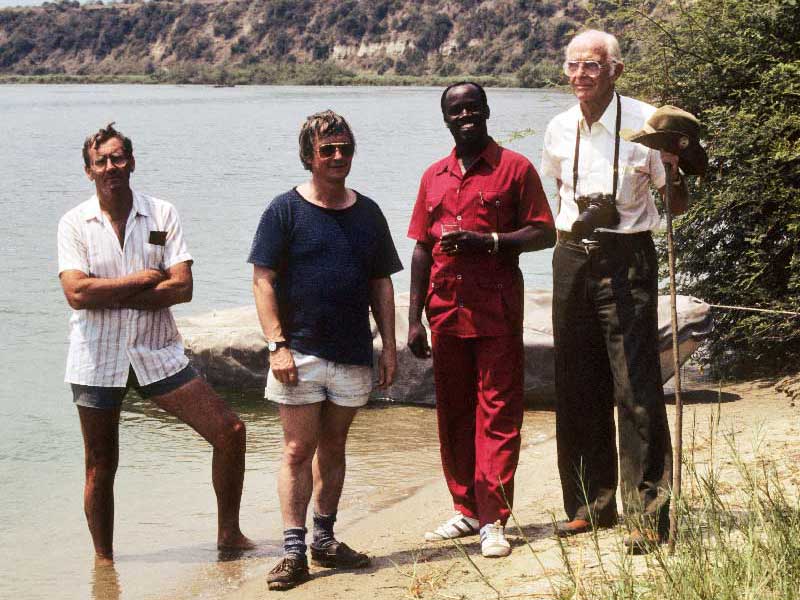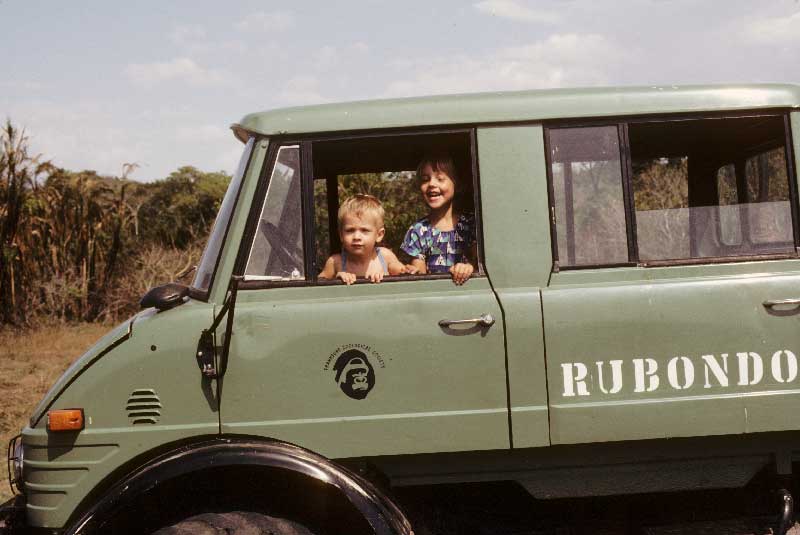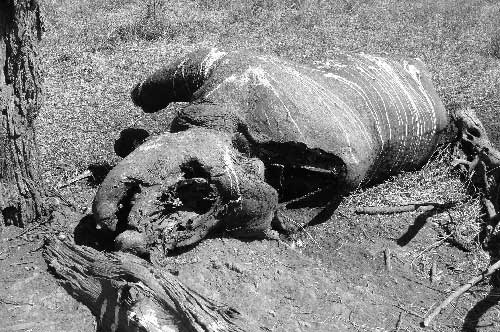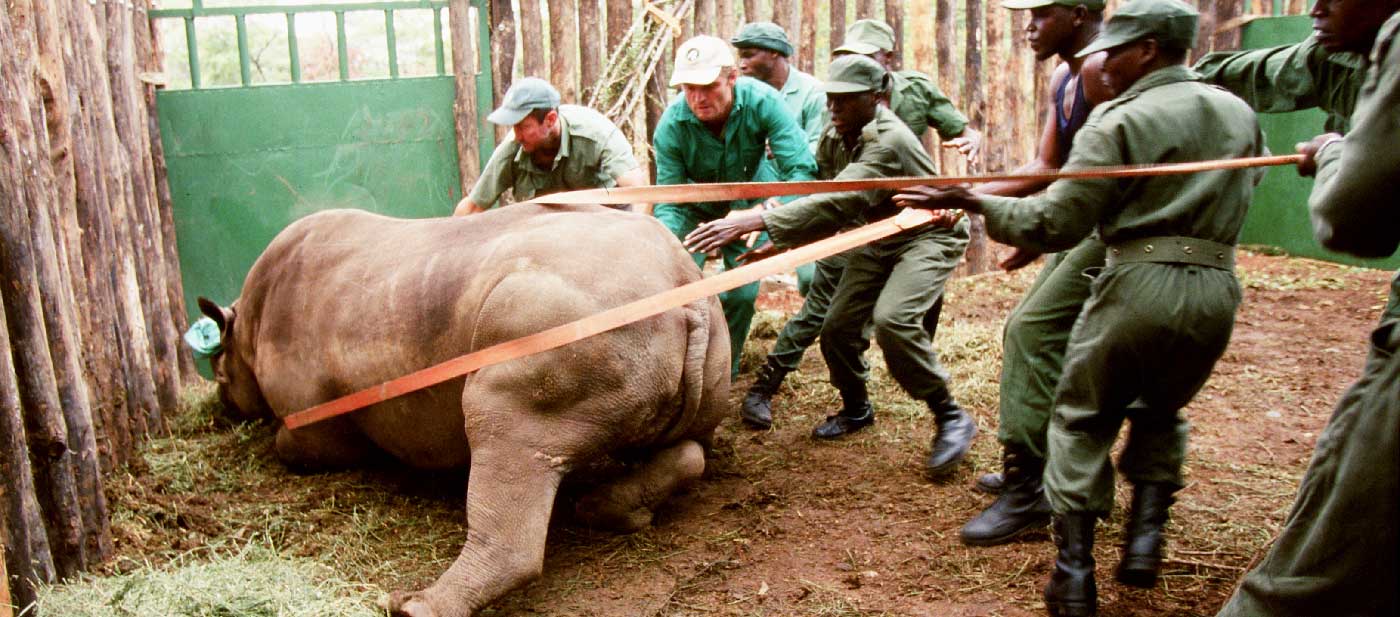2. Moving to Africa, a wild animal kingdom
The splendor and terror of nature
When Professor Borner went to Sumatra in 1972, he had a fateful encounter with Bernhard Grzimek, the director of the Frankfurt Zoological Garden in Germany.

Prof. Grzimek (Far Right) / Prof. Borner (2nd from Left) (1982)
Rubondo Island at that time was isolated in a remote region. Living in the area was difficult. They only saw their coworkers, rangers, and their families. No one else visited them.

They did not have electricity or gas, and it took an entire day to reach the nearest town. They were only able to shop once every two months.
Meanwhile, the front of their homes on Rubondo Island was a beach with palm trees. They could hear hippopotamuses snorting all night long, and see beautiful birds and butterflies during the day. It was a wonderful place in the midst of beautiful nature.
Professor Borner's children, Sophie and Felix, had a relaxed and enjoyably upbringing in this unspoiled natural environment. Although they sometimes missed civilization, Professor Borner and his family felt very happy living in this wonderful place.

At Rubondo Island
Felix (Left) and Sophie (Right)
A vast expanse of plain, Serengeti
In 1983, after working on Rubondo Island for six years, Professor Borner moved to Seronera, which is located in the middle of Serengeti National Park, to work on its expansion and development. This was the beginning of his 40-year life in the Serengeti.
Serengeti National Park is located in northern Tanzania. Covering 14,760km2, it is one of the largest national parks in Africa with an area larger than Northern Ireland, and more than one third the size of Professor Borner's home country, Switzerland.
The other was the killing of rhinoceroses for their horns and elephants for their ivory, both valuable items sought by extensive criminal organizations. Poaching for ivory reduced the population of elephants at an animal sanctuary in southern Tanzania from 100,000 to 30,000 within a few years.

Professor Borner first established a foundation at the Frankfurt Zoological Society to raise money for Serengeti National Park. He used this money to ensure that park rangers were paid regularly and had the uniforms, vehicles, and radios they needed to protect the wildlife. Through his efforts, he gradually improved the management of the park.















